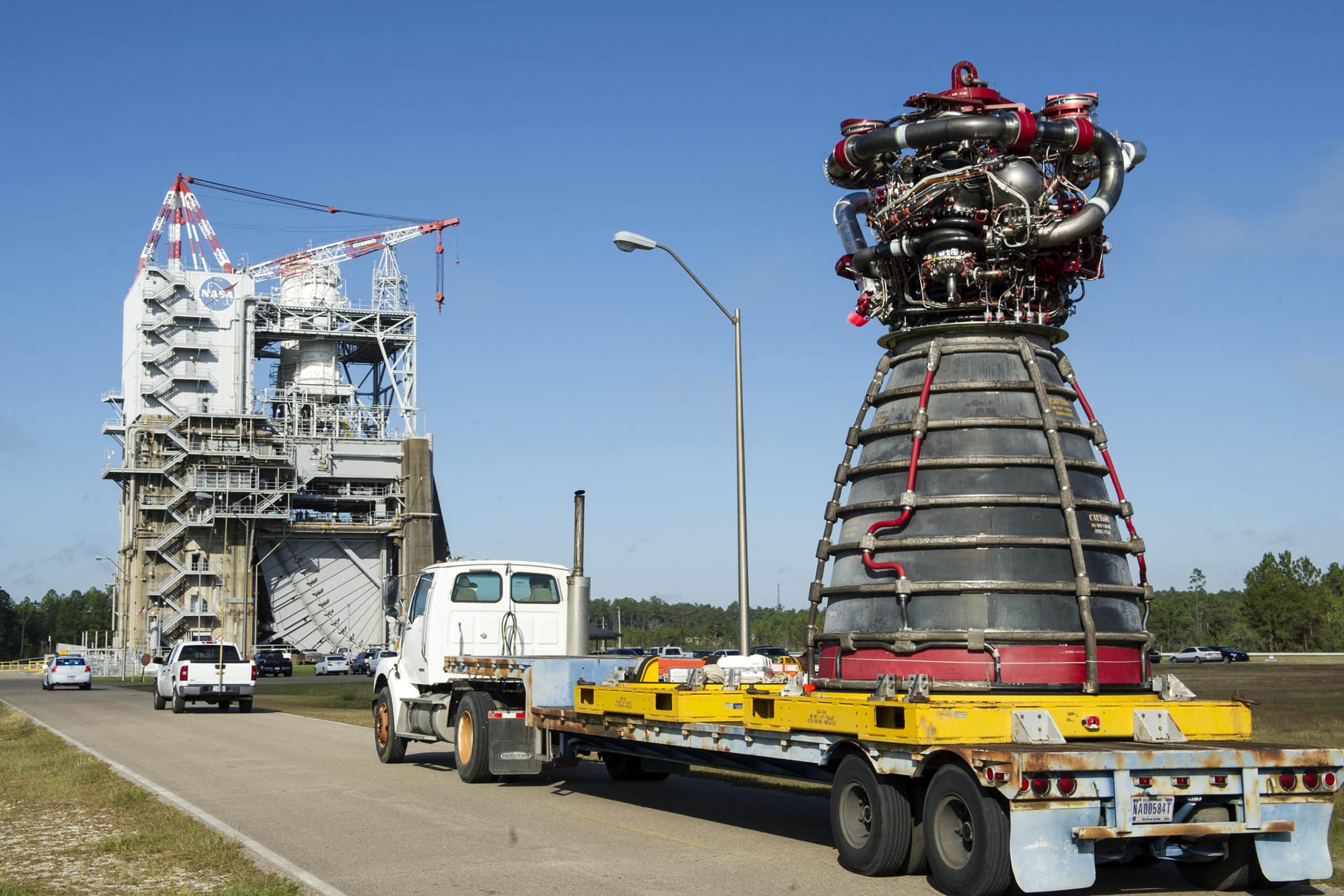
NASA spends $100 million per RS-25 main engine, which is 5-100 times more expensive than comparable rocket engines from the private sector, according to a recent report from the NASA inspector general.
Jeff Bezos’ Blue Origin manufactures BE-4 engines, which are similar to RS-25 engines in size and power, for $8-20 million apiece. Elon Musk’s SpaceX makes even cheaper rockets of comparable power for about $2-2.5 million.
Elon Musk Shares SpaceX’s Starship Raptor Production Plans To Colonize Mars By 2050https://t.co/6Pln7WskvC
— vincentyu.eth (@vincent13031925) July 11, 2021
NASA is pushing to lower the cost of RS-25 engines to just over $70 million apiece, roughly constituting a 30% decrease, but it still isn’t even in the same ballpark as private sector engines. SpaceX, on the other hand, is aiming to lower the cost of its Raptor engines by a factor of 10.
The inspector general’s report further explained that building and refurbishing RS-25 engines as well as producing solid rocket boosters for the first Artemis missions incurred $6 billion in cost increases and more than 6 years of delays.
To be clear, the $6 billion isn’t the entire cost of the engine project, it’s simply the cost overruns.
NASA also rated some of the contractors much better than it should have. Aerojet, tasked with refurbishing 16 RS-25 engines, only delivered 5. Despite the miserable performance, NASA rated Aerojet’s work “very good.”
NASA’s History of Overpaying Contractors
NASA is well-known for the costly nature of its projects and research. Admittedly, space exploration and research are obscenely expensive, especially when the goal is to pioneer new technology. However, NASA has clearly overpaid contractors for their services multiple times.
For example, a separate report from the inspector general found that NASA overpaid Boeing $187 million. Since 2011, NASA has relied on Russia to transport astronauts to the International Space Station (ISS).
NASA was unhappy with this reliance so it recently turned to US contractors Boeing and SpaceX to build its own transport spaceships to carry astronauts to the ISS with multi-billion dollar contracts.
The agency paid Boeing $287.2 million more than its fixed-rate contract stipulated for “various flexibilities” including speeding up the production of the shuttle. It was worrying that it wouldn’t be able to send a shuttle to the ISS for 18 months otherwise, though the inspector general thought the risk of this was “minimal.”
The inspector found that NASA didn’t ask SpaceX if it had a solution to the perceived problem, even though it promised faster production than Boeing. He also discovered that NASA didn’t consider the possibility of asking Boeing or Russia if it could purchase the required seats to fill such a gap if it arose.
NASA isn’t the only government agency that overpays contractors. The Pentagon is also known for overpaying defense contractors often. For example, it overpaid 2 of its top contractors by about $100 million in 2019 because Department of Defense administrators didn’t listen to their own auditors. It is also regularly gouged on prices by contractors like Boeing and Lockheed Martin.
Critics argue that these agencies should receive much more oversight on how they spend taxpayer money.
Related Articles:
How to Buy Lockheed Martin Stock in 2023
Aerospace Startup Vast is Selling Tickets to the First Private Space Station With SpaceX’s Help
YouTube to Kill Off Stories On June 26th to Focus On Shorts
What's the Best Crypto to Buy Now?
- B2C Listed the Top Rated Cryptocurrencies for 2023
- Get Early Access to Presales & Private Sales
- KYC Verified & Audited, Public Teams
- Most Voted for Tokens on CoinSniper
- Upcoming Listings on Exchanges, NFT Drops